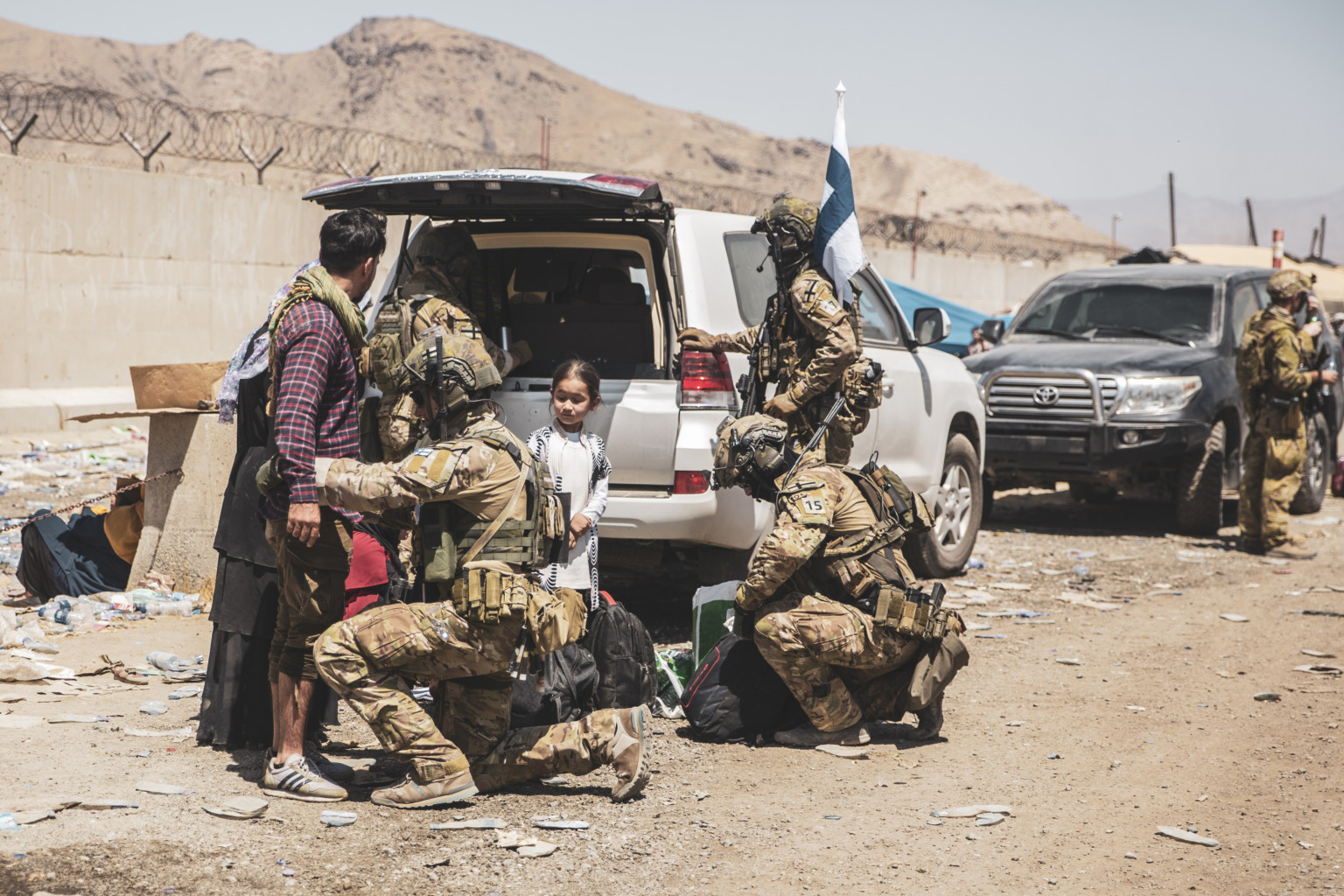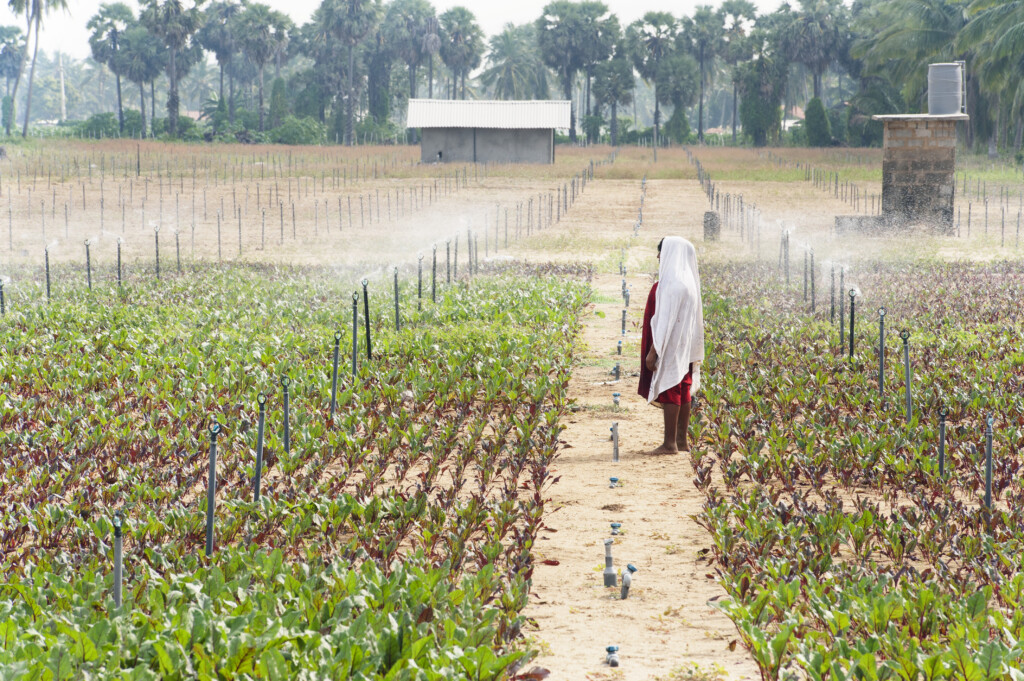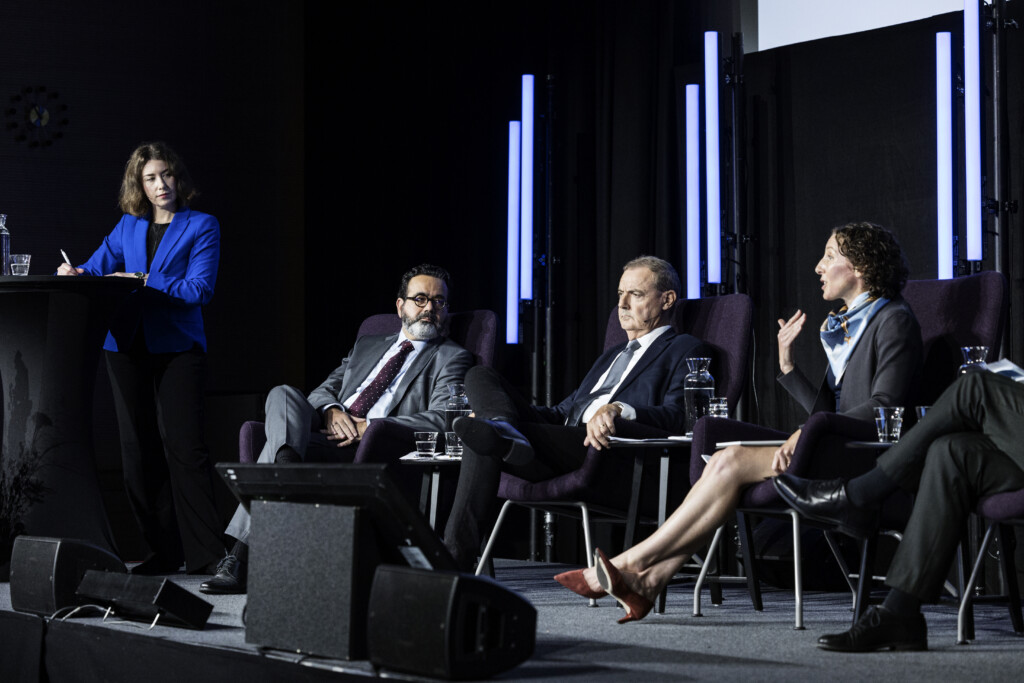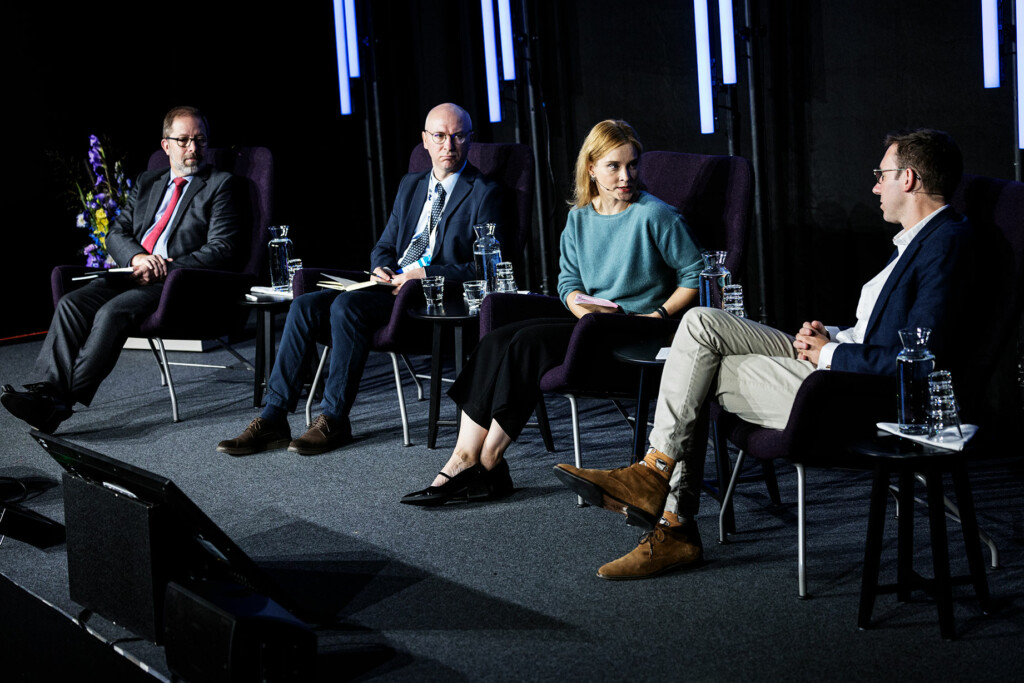News

The lessons (un)learned from Afghanistan
One and a half years after the chaotic evacuation process emptied Kabul of most international actors and ended “America’s longest war”, Afghanistan remains under the control of the Taliban and its increasingly draconian rule. By now there is wide disillusionment with the new leaders’ early promises to respect the rights of all people. Each new curtailment of the rights of women and girls is met with broad international condemnation, but this seems to do little to change the governing style of the regime.
Simultaneously, there appears to be little time and perhaps even less interest to reflect on the track record of the nearly twenty years of intervention for clues on how to deal with contemporary challenges. The United States’ new National Security Strategy refers to the end of the war in Afghanistan as an end of an era to “remake other societies”. Furthermore, with a new war raging in Europe, the focus of Western powers that once invested heavily in Afghanistan is shifting to great power competition. NATO’s focus on regional defence and security has been reasserted, moving away from external crisis management and state-building projects.
Given the outcome of the intervention and the state of current world affairs, there is a risk that the only lesson drawn from the intervention is not to do anything like it ever again. Even if this is indeed what ends up happening, a hard analytical look at the Afghanistan intervention is well worth the effort.
Based on our recent research on Finland’s participation in the international stabilisation and reconstruction efforts, there are ample lessons to be learned from the intervention in Afghanistan that can contribute to more effective crisis responses with longer-lasting results. Here, we’ll focus on five lessons that states and international organisations can learn from the intervention – for their own and for Afghanistan’s sake.
“Insufficient familiarity with the cultural, political, and societal context in Afghanistan and the narrow definition of local ownership contributed to activities that proved unsustainable in their results.”
Firstly, keep it modest, locally driven and context specific. Even when interventions of the scale seen in Afghanistan are unlikely in the near-term, there are lessons to be learnt for ongoing and future military and civilian crisis management and peacebuilding operations. Afghanistan provides a warning against overly ambitious objectives and short time frameworks that push for quick results at the expense of long-term strategic action. This is not solely a question of mandates but can link to short project and leadership cycles that contribute to pressures to show tangible results in unrealistic time frames.
The intervention also calls for investments in diverse expertise and human resources for analysis and monitoring. Insufficient familiarity with the cultural, political, and societal context in Afghanistan and the narrow definition of local ownership during the intervention contributed to activities that proved unsustainable in their results. Reconstruction efforts in Afghanistan were planned without much attention to local buy-in and leadership, which proved not only ineffective but counterproductive and conducive to corruption. The societal roles and legitimacy of local counterparts (mainly national and local elites) were not properly understood, which made it impossible to anticipate the impact of the reforms promoted by international actors.
There are numerous ongoing crisis management operations and multilateral peace and development efforts in fragile states that face similar challenges and risks as the operations in Afghanistan. For example, the EU’s crisis management missions that today mostly consist of capacity building and training of partners should be examined from the perspective of whether they are based on locally identified needs and models for development. They should also be based on a deep analysis of the local context, their impact on local power structures and who the local counterparts are and whether their goals are in line with the EU’s and most importantly those of society at large.
Second, genuine strategic coordination is key. Afghanistan provides lessons on a general strategic level regarding cooperation and coordination among international actors engaged in (broadly defined) shared efforts. Credibility of joint efforts derives from strategic coordination, yet this does not automatically follow from mechanisms to meet or exchange information. Strategic coordination is about shared goal setting regarding the situation at hand. Even when participating actors may hold motivations and goals not directly linked to the issue at stake, a shared objective regarding the joint efforts and their impact on the situation is needed for strategic action.
Moreover, strategic coordination requires an agreement on how to reach shared objectives – even if different actors participate in different activities. Strategic coordination enhances predictability of actions, which enables planning (including exit-plans) and credible communication to third parties. Strategic coordination makes a “comprehensive approach” possible: comprehensiveness does not require everyone doing everything, but rather everyone’s activities together forming a coherent endeavour. These are all aspects that are pivotal for credible collective support and communication of that support to Ukraine now.
Third, coalition participants are different. The intervention offers distinct lessons for different participants of international efforts, depending on one’s resources, motivations, and stakes in a situation. For small states such as Finland, the experiences in Afghanistan emphasise the need to carefully analyse the motives and interests of the lead countries and other major international actors, in order to plan and identify added value in its own participation. Clarity and transparency of one’s own and others’ motivations for participation in joint efforts can improve strategic coordination and allows for more effective resource distribution. In Afghanistan, Finland’s participation was primarily motivated by its will to maintain and deepen international partnerships, particularly with the US. However, Finland did not want to emphasise this rationale for participation as an outspoken objective, which in turn made planning, monitoring, and evaluating its actions difficult.
Fourth, ensure accountability. Clarity of objectives is crucial for holding international actors accountable for their actions. In Afghanistan, the multiple and often unclear objectives that guided the intervention allow different actors to narrate the outcome now in retrospective in ways that suit them best. According to the Biden administration, the US achieved its objectives in Afghanistan long time ago by killing Osama Bin Laden and keeping al-Qaeda at bay. In Finland, particularly the defence administration highlights the benefits that participation in Afghanistan brought to Finland’s defence capabilities, NATO partnership, and the ongoing membership process – departing from the narrative of the rationale for participation during the intervention.
These frames are politically convenient as they brush aside the apparent failure of the stabilisation and counterinsurgency efforts and the responsibility over them. They also blur accountability for the promises of long-term commitment made during the intervention – including its final years. Finland, for example, was at the forefront of promoting girls’ education and women’s training (e.g., as police officers and journalists). Even when there was no clear strategy on how these efforts would eventually end, the plan certainly was not for them to end in the collapse of the government and the Taliban taking over. The lesson here points back to the importance of careful planning and strategic coordination, yet it also requires acknowledgement of responsibility over the impact of one’s actions – irrespective of the motivations of an actor.
“The rise of the Taliban’ counterinsurgency did not take place in a vacuum but influenced and was influenced by the intervention.”
Fifth, and lastly, intervening leads to long-term responsibilities. While the outcome is never guaranteed, intervention always builds relationships with locals. Commitments are made, expectations are raised, hope is created, assurances are given. All of this leads to a measure of responsibility that cannot be abrogated simply by withdrawing. To do so is to question the credibility of the ideals the intervention advocated. To put it bluntly, you cannot talk about the importance of the rights of women and girls for 20 years and then walk away from those same women and girls as if nothing happened.
Whatever the explicit and implicit objectives of different participating states were, from the perspective of conflict and societal dynamics international actors hold their share of responsibility over the outcome in Afghanistan. The intervention influenced society in all-encompassing albeit often unplanned ways, benefitting some local actors while weakening others, feeding corruption, creating parallel governance and economic structures, and leading to civilian casualties, to name just a few of the effects. The rise of the Taliban’ counterinsurgency did not take place in a vacuum but influenced and was influenced by the intervention.
Equally, the way the war ended tells us little about what Afghans deserved, asked, or wanted. The swift collapse of the regime is an indication of deeply rooted and numerous problems that the efforts to reform the state institutions and the security forces faced. It points to problems in crisis management and reconstruction that are difficult but not impossible to resolve, demanding serious self-reflection and new ways to approach crisis and conflict situations as international actors. It can also teach us about the importance of timing of negotiations and the dangers of creating parallel economies dependent on the aid industry. Yet it does not tell us about the compatibility or incompatibility of the cultures in Afghanistan with democratic principles and pluralist forms of governance. To learn about these, we ought to have spent a lot more time listening to the diverse local perspectives on their priorities and needs. It is a high time to start doing that now.
Katariina Mustasilta is a Leading Researcher at the Finnish Institute of International Affairs.
Timo R. Stewart is a Senior Research Fellow at at the Finnish Institute of International Affairs.
Tyyne Karjalainen is a Researcher at the Finnish Institute of International Affairs.

for HSF Blog
New Technologies Reshape the Geopolitics of Water and Climate
The geopolitical landscape of water and climate is changing due to innovation and technological evolution. How will it affect our...

Session VI: Economic Security as National Security
The final session of HSF 2023 dived into the multifaceted world of economic security. Economic interdependence between countries is a...

Session V: Rejecting Russian Spheres of Influence
Where and how must we reject Russian spheres of influence? The fifth panel of Helsinki Security Forum 2023 delved into...
About the author
Katariina Mustasilta, Timo R. Stewart and Tyyne Karjalainen
Finnish Institute of International Affairs
Katariina Mustasilta is a Leading Researcher at the Finnish Institute of International Affairs. She steers the research project ‘Finland in Afghanistan 2001-2021’ that examines Finland’s engagement in the stabilisation and reconstruction efforts in Afghanistan. Mustasaari is also part of the Institute’s European Union research programme.
Timo R. Stewart is a Senior Research Fellow at at the Finnish Institute of International Affairs. His areas of expertise include the Israel-Palestine conflict, European and US Middle East policy, and the role of religion in conflict and politics. Stewart is part of the Institute’s European Union research programme.
Tyyne Karjalainen is a Researcher in the European Union research programme at the Finnish Institute of International Affairs. Her research focuses on European Union foreign and security policy and differentiated integration in the EU. Her publications also cover peace-building, crisis management and peace mediation.